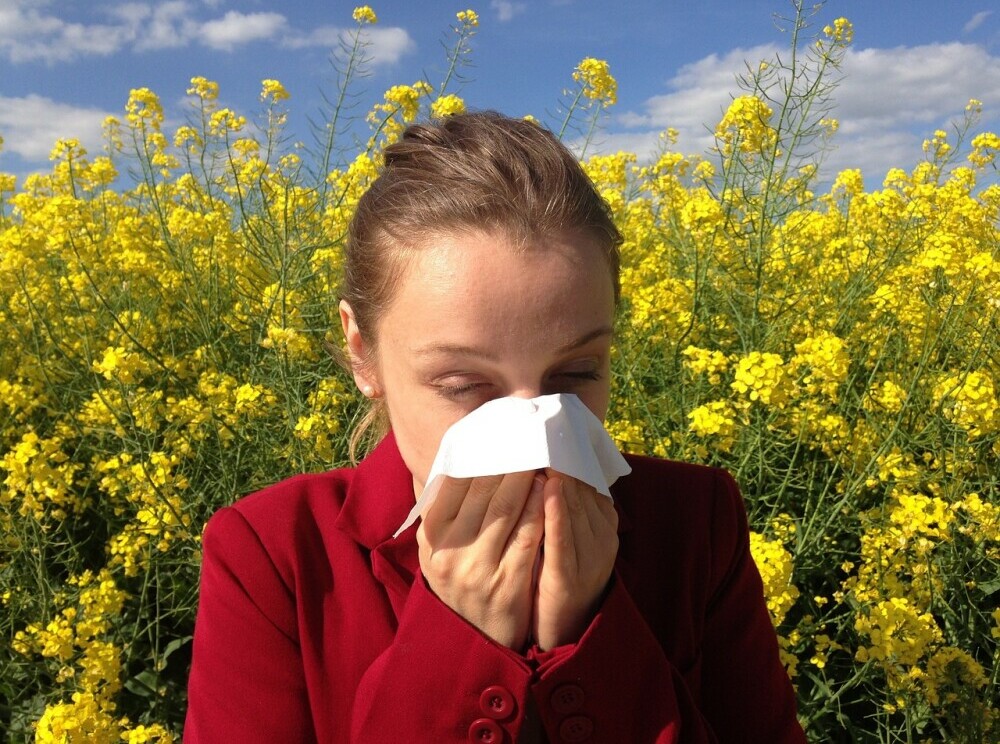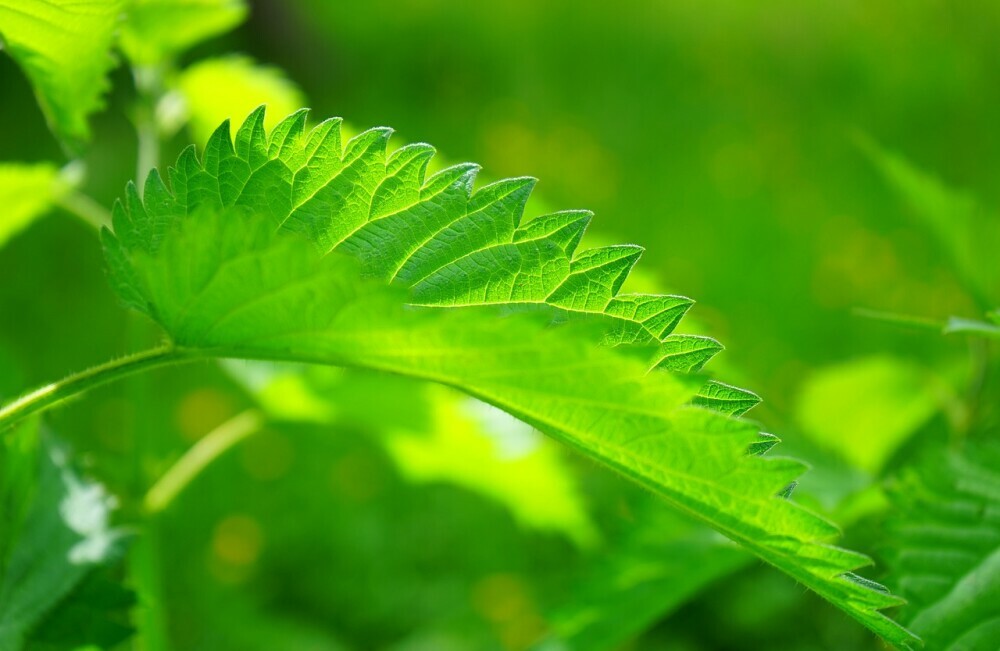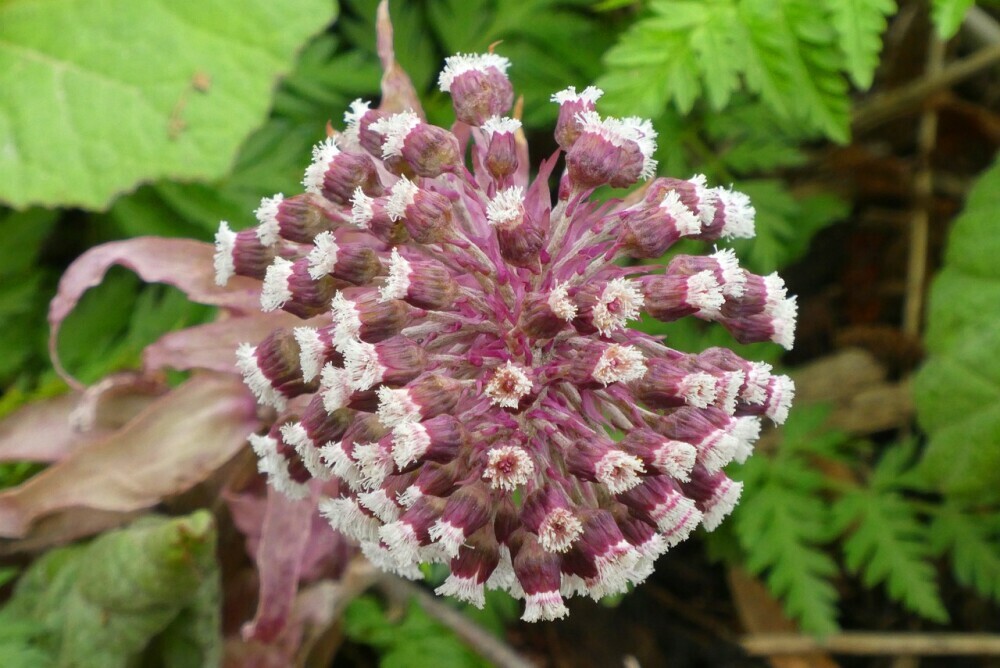I earn commissions if you shop through the links below at no additional cost to you.
Last Updated on February 1, 2024 by Jeremy
If you’re dreading the sneezing, runny nose, and watery eyes that come with allergy season, you’re not alone. Before I explain how to tackle these symptoms naturally, it’s crucial to grasp the basics of what’s actually happening when you step outside and the pollen count is high.
Common outdoor allergens include pollen from grasses, trees, and weeds. Mold spores are also common culprits, hovering in the air on warm, humid days and after rain showers. These tiny particles are the unseen adversaries that can provoke your immune system into overdrive, leading to the all-too-familiar allergy symptoms many of us struggle with.

As for how these allergens affect your body, here’s the simple breakdown: they trigger the immune system to release histamines, which create the inflammation responsible for symptoms like congestion, itchy eyes, and throat discomfort. It’s a protective effort that your body thinks is helpful, but feels anything but.
You’ll notice that sometimes these symptoms are a fleeting nuisance, while at other times, they seem to stretch on forever. This is the difference between seasonal allergies, which are usually linked to specific pollen in spring or fall, and perennial allergies, which can be a year-round concern, often due to molds or other persistent allergens.
Embracing this understanding is the first step towards managing your allergy woes. But don’t worry too much about loading up on over-the-counter remedies just yet. In the next section, I’m going to talk about how natural solutions can offer relief, keeping you grounded and healthy without always relying on pharmaceuticals.
- The Relevance of Natural Remedies in Managing Allergies
- Herbal Allies: Plants That Combat Allergens
- From the Kitchen to the Outdoors: Everyday Ingredients for Allergy Relief
- Nasal Irrigation: A Natural Way to Clear Allergens
- Lifestyle Adjustments to Lessen Exposure and Symptoms
The Relevance of Natural Remedies in Managing Allergies
In my opinion, when you’re sniffling and sneezing, desperate for relief, you might be tempted to reach for powerful pharmaceutical remedies. They’re everywhere, after all, and promise fast relief.

But stick with me here because we’re going to look at something else: natural remedies. There’s a reason people have turned to nature for millennia to ease their ailments, and allergies are no exception.
Don’t worry too much about the efficacy of these natural options. We’re talking about tried-and-true remedies that have more than just anecdotal evidence backing them up. For one, they tend to have fewer side effects than their pharmaceutical counterparts, which is a huge plus for many. Also, some pharmaceuticals can cause drowsiness or interact with other medications, whereas natural remedies usually don’t.
Now, this isn’t just about popping a supplement or chewing on a plant. A holistic approach means looking at your whole lifestyle. What are you eating? How much are you sleeping? How well are you managing stress? These factors can all influence your allergies, and natural remedies often play a pivotal role in a holistic allergy management strategy.
You can always adjust your approach down the road, but many find that incorporating natural remedies into their life works well alongside more traditional treatments. Think of it like a tag team where each method has its strengths, complementing each other to help you feel better.
Choose something that resonates with you, and remember, it’s important to consult with a healthcare provider before starting any new health regimen, especially if you have existing health conditions or are on other medications.
Herbal Allies: Plants That Combat Allergens
You’re going to find out about some of the most potent plants and herbs that have been traditionally used to ease allergy symptoms. The beauty of these natural remedies lies in their accessibility and the history of their use in herbal medicine.
Nettle leaf, often considered just a pesky weed, is actually a powerful antihistamine. Researchers believe that nettle leaf can help reduce the amount of histamine the body produces in response to an allergen. You can find nettle leaf in various forms such as teas, capsules, and extracts.

Then there’s butterbur. This plant deserves more recognition for its potential in battling sneezes and sniffles without the drowsiness often associated with over-the-counter antihistamines. Studies suggest that butterbur extracts can be as effective as some pharmaceutical options, making it a strong contender in your natural allergy-fighting arsenal.

Don’t overlook the power of quercetin either; this antioxidant is found in many common foods like apples, berries, and red grapes. Quercetin may help stabilize mast cells and prevent them from releasing histamine. Incorporating quercetin-rich foods in your diet isn’t just tasty; it’s also a proactive step towards managing your allergies.

Now, incorporating these herbal remedies needs thought and care. Remember, choose something that resonates with you, and always consult with a healthcare provider before starting any new supplement, especially if you have existing health conditions or are taking other medications.
From the Kitchen to the Outdoors: Everyday Ingredients for Allergy Relief
You’re probably used to reaching into your kitchen cabinet for ingredients to cook your next meal, but you might not realize that some of these staples can also be your allies against outdoor allergies. Let’s explore a few.
Starting with local honey, it’s not just a sweet treat. Many believe consuming honey produced in your area can help your body adapt to local allergens, particularly pollen, due to its content of local pollen spores. Including a spoonful of local honey in your daily diet might just build up your immunity over time.

Now, let’s talk about turmeric. This vibrant yellow spice isn’t just for curry; it’s also packed with curcumin, which is touted for its anti-inflammatory properties. Consuming turmeric can help manage the inflammation that comes with allergic reactions and might offer some relief from annoying symptoms.
And don’t overlook garlic. Beyond adding zest to your dishes, it can be a potent player in your wellness routine. Garlic contains compounds like allicin, which can help boost the immune system — potentially making your body less reactive to allergens.
Now, integrating these ingredients isn’t a one-and-done solution. Allergies are pesky, and they require a consistent approach. So as you add these natural remedies to your routine, remember that patience is key; it might take some time before you see noticeable changes.
Nasal Irrigation: A Natural Way to Clear Allergens
I’m going to walk you through a simple, yet effective way to alleviate those pesky allergy symptoms, and that’s nasal irrigation. Nasal irrigation, also known as nasal lavage or sinus rinsing, is a method where you flush out your nasal passages with a saline solution. This can help clear up congestion and remove allergens that could be causing irritation.
Now, for many of you, the idea of pouring a solution into your nose may seem a bit daunting, but don’t worry too much about it. Once you try it, you may find it’s less uncomfortable than you thought. Here’s how you can do it safely: Begin by leaning over a sink and tilting your head sideways. Using a neti pot or a nasal bulb, gently introduce the saline solution into the upper nostril, and let it drain out of the other. Be sure you’re using distilled or previously boiled water to avoid any contaminants.
The relief comes from the salt in the solution, which helps to decrease swelling in the nasal passages, making it easier for you to breathe. Also, it directly washes away allergens and mucus. It’s a very straightforward approach to getting immediate relief, especially during peak allergy seasons.
If you’re new to nasal irrigation, you might want to start incorporating it into your routine gradually, perhaps before bedtime or after spending time outdoors. Remember, this isn’t a one-time miracle cure. Regular use is key to achieving the best results.
This 3-minute video should give you clarity and comfort:
Choose something that resonates with you—whether it’s a neti pot, squeeze bottle, or any other nasal irrigation tool. Just don’t focus too much on perfection. It might take a few tries to get the technique down, but it will become second nature with practice.
Lifestyle Adjustments to Lessen Exposure and Symptoms
You’ve learned about natural remedies, but managing allergies doesn’t stop there. It’s also about tweaking your lifestyle to dodge allergens. Let’s talk about strategies that reduce your contact with pesky triggers and diminish your allergy symptoms.
First up, scrutinize your daily routine. Are there certain activities that kick up more dust or pollen? Something as simple as avoiding morning jogs when pollen counts are sky-high can make a big difference. Similarly, when gardening, gear up with gloves and a mask to shield yourself from spores.
Your home environment plays a huge role too. HEPA filters in air conditioners and vacuum cleaners can trap allergens, making your home a haven. And here’s a tip: keep windows closed during high pollen hours to prevent these unwelcome guests from drifting in.

Staying hydrated isn’t just good advice; it’s your allergy secret weapon. Water helps thin mucus, making it easier to clear your sinuses. So, don’t skimp on the H2O—make sure you’re drinking plenty of fluids throughout the day.
Lastly, don’t underestimate the power of relaxation. Stress is a known allergy aggravator. Incorporate breathing exercises, meditation, or yoga into your daily regimen to keep stress levels—and potentially allergy symptoms—at bay.
Adopting these tools and tactics can be game-changers in your allergy battle. And remember, you can always adjust your approach down the road. Small, intentional lifestyle changes can yield big results in your comfort and well-being. So, arm yourself with knowledge, select strategies that resonate with you, and take control of your outdoor allergies!
Questions – Comments??
Earth is Heart!







Hi,
Your post about using nature to treat common outdoor allergies is a thoughtful look at how we can use nature to our advantage to fight the discomfort of seasonal sensitivities. It is encouraging to see a discussion that recognizes the holistic approach to managing allergies, including dietary and lifestyle modifications. It highlights the efficacy of natural remedies like butterbur, quercetin, and nettle leaf. This method promotes a more sustainable and gentler approach to allergy management and helps cultivate a closer bond with nature. It serves as a reminder that sometimes the best cures are the ones that have been around for ages and are just waiting for us to find them again. Very well done. Keep up.
Thank you, Sara! We’re thrilled to hear that you found our post on natural remedies for outdoor allergies helpful. Embracing nature’s offerings can indeed provide effective relief while fostering a deeper connection with the world around us. Here’s to a healthier, allergy-free outdoor experience for all!